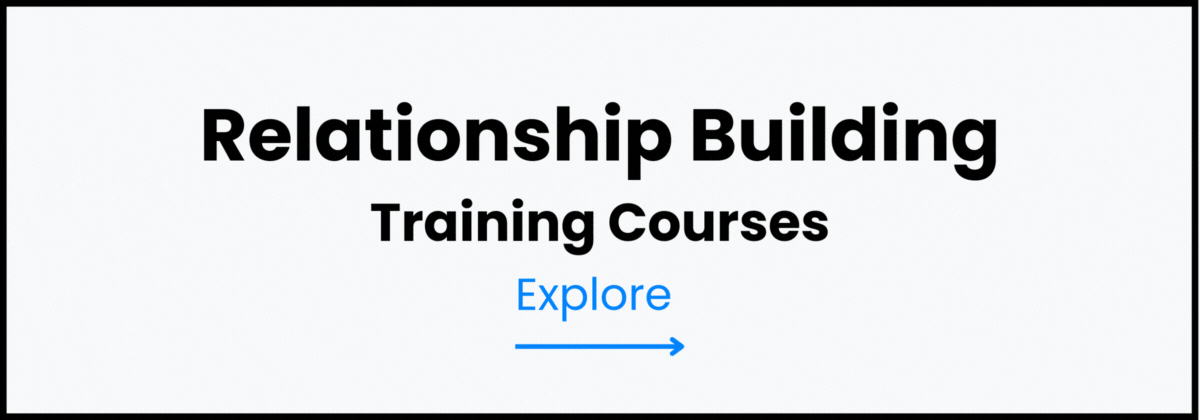How to Build Strong Workplace Relationships
In today’s professional environment, technical expertise and knowledge are not enough to guarantee long-term success. The quality of your workplace relationships often determines how well you can collaborate, influence, and lead. Strong professional connections improve communication, foster trust, and enhance productivity. Conversely, poor relationships can lead to conflict, miscommunication, and disengagement.
Building effective relationships is not about being popular or agreeable at all costs. It’s about cultivating trust, respect, and collaboration that allow individuals and teams to thrive. This article explores practical strategies to build strong workplace relationships that support both personal growth and organizational success.
The Benefits of Strong Workplace Relationships
When workplace relationships are nurtured and maintained, organizations experience a wide range of benefits:
- Improved Communication: Teams share information openly and avoid misunderstandings.
- Higher Engagement: Employees feel more connected to their work and colleagues.
- Increased Collaboration: Strong bonds foster teamwork and collective problem-solving.
- Reduced Conflict: Respectful relationships minimize unnecessary disputes.
- Career Advancement: Professionals with strong networks often progress faster in their careers.
Investing in Relationship Building Training Courses equips individuals with the interpersonal skills to unlock these benefits and create long-lasting professional bonds.
Foundations of Workplace Relationship-Building
-
Trust as the Cornerstone
Trust is the bedrock of strong relationships. Without it, collaboration falters. Building trust requires consistency, honesty, and reliability in every interaction.
-
Respect for Diversity
Modern workplaces bring together individuals from different cultural, educational, and professional backgrounds. Respecting these differences is essential for harmony.
-
Effective Communication
Clear, empathetic, and active communication prevents misunderstandings and strengthens collaboration. Skills from the Best Practices in Communication and Relational Skills Course provide practical methods to improve workplace dialogue.
Practical Strategies to Build Strong Relationships
-
Practice Active Listening
Truly listening — not just waiting for your turn to speak — builds respect and understanding. Demonstrate attentiveness through eye contact, nodding, and clarifying questions.
-
Show Appreciation Regularly
Acknowledging contributions, whether big or small, fosters goodwill and mutual respect.
-
Offer Support in Times of Need
Helping colleagues during challenging moments creates stronger bonds and encourages reciprocity.
-
Establish Boundaries
Healthy relationships balance professional closeness with respect for personal space and limits.
-
Communicate Transparently
Open communication, even about difficult topics, prevents misunderstandings and builds credibility.
Building Cross-Departmental Relationships
Workplace relationships should not be limited to immediate teams. Collaborating across departments improves organizational cohesion and innovation.
For professionals tasked with managing external and internal partnerships, the Managing Strategic Alliances & Partnerships Course provides frameworks to navigate complex professional networks effectively.
The Role of Emotional Intelligence in Workplace Relationships
Emotional intelligence (EQ) — the ability to recognize, understand, and manage emotions — plays a pivotal role in relationship-building.
- Self-Awareness: Understanding how your emotions impact others.
- Empathy: Recognizing and respecting the feelings of colleagues.
- Self-Regulation: Managing stress and avoiding reactive responses.
- Social Skills: Building rapport and maintaining positive interactions.
High-EQ professionals tend to navigate workplace dynamics more smoothly and sustain stronger connections.
Managing Conflict Constructively
Even in healthy workplaces, disagreements are inevitable. What matters is how conflict is managed. Strong workplace relationships survive — and even thrive — when conflicts are addressed constructively.
Conflict-Resolution Tips:
- Address issues early before they escalate.
- Focus on the problem, not the person.
- Listen to all perspectives before deciding.
- Seek compromise where possible.
Training such as the Organisation Relationship Systems in the Workplace Course equips professionals to navigate workplace conflict while preserving relationships.
Leadership’s Role in Relationship Building
Leaders set the tone for workplace culture. By modeling respectful communication, encouraging collaboration, and recognizing contributions, leaders can inspire employees to foster stronger professional relationships.
Great leaders also prioritize psychological safety — creating an environment where employees feel safe to speak openly, share ideas, and admit mistakes without fear of judgment.
Workplace Relationship Building in Remote and Hybrid Settings
With the rise of remote and hybrid work, building relationships requires intentional effort.
Strategies include:
- Scheduling regular check-ins and virtual coffee chats.
- Encouraging video calls for more personal interaction.
- Using collaborative tools to maintain transparency.
- Recognizing achievements publicly in team channels.
Remote relationship-building relies heavily on trust, proactive communication, and empathy.
The Long-Term Career Value of Strong Relationships
Professionals with strong workplace relationships enjoy advantages beyond immediate tasks:
- Stronger Networks: Opportunities for mentorship and collaboration.
- Career Resilience: Support systems to navigate organizational changes.
- Enhanced Reputation: Being known as approachable and collaborative builds credibility.
- Leadership Opportunities: Those with influence and trust are often promoted into leadership roles.
A Step-by-Step Plan to Strengthen Workplace Relationships
Step 1: Self-Assessment
Evaluate your current relationship strengths and weaknesses.
Step 2: Identify Key Stakeholders
Map colleagues, managers, and partners critical to your role.
Step 3: Initiate Conversations
Reach out for casual or professional discussions to build rapport.
Step 4: Demonstrate Reliability
Deliver on promises consistently to earn trust.
Step 5: Seek Feedback
Ask for input on communication and collaboration to show openness.
Step 6: Maintain Regular Contact
Relationships fade without effort. Regular, genuine engagement sustains trust.
Relationships as a Professional Asset
Strong workplace relationships are not built overnight. They require effort, consistency, and emotional intelligence. By investing in trust, communication, and collaboration, professionals can create supportive networks that benefit both personal careers and organizational success.
For those seeking structured development, programs such as the Best Practices in Communication and Relational Skills Course, Managing Strategic Alliances & Partnerships Course, and Organisation Relationship Systems in the Workplace Course provide practical skills to build, strengthen, and sustain workplace connections.
When combined with ongoing practice and commitment, these strategies transform relationships into one of the most powerful tools for workplace success.
Explore:





